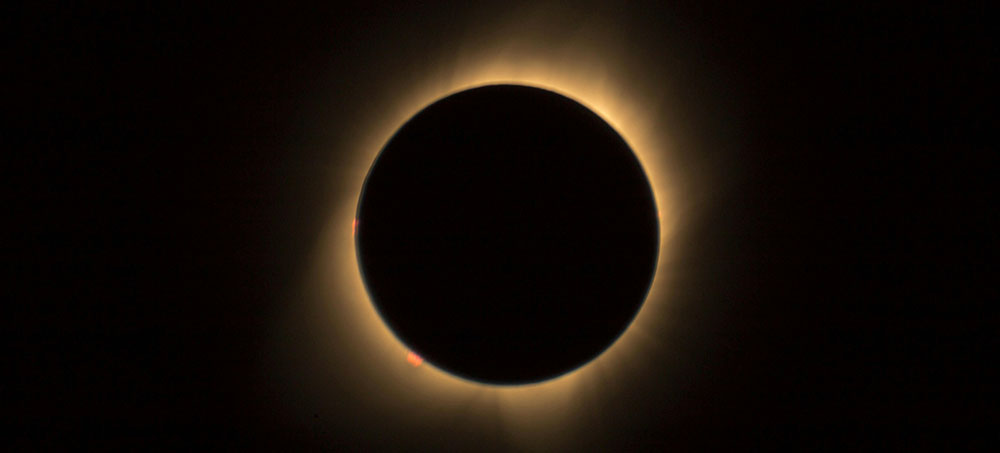On April 8, the entire United States will experience a partial eclipse of the sun. The UW—Madison Department of Ophthalmology and Visual Sciences has important guidelines to protect your eyes and stay safe.
Looking at the sun without the right eye protection — for even a short time — may damage your retina permanently and even cause blindness. General sunglasses of all grades of darkness will not provide the protection you need. Instead, you will need specialized ‘eclipse glasses’ or a hand-held solar viewer. These solar glasses, though readily available and inexpensive, should only be purchased from a reputable manufacturer. The American Astronomical Society has a list of companies whose products conform to the necessary safety standards.
Please remember that viewing any part of the bright sun through a camera lens, binoculars, or a telescope without a special-purpose solar filter secured over the front of the optics may almost instantly cause severe eye injury.
A pinhole viewer is also a safe and easy way to see the eclipse. A pinhole viewer lets you project an image of the sun onto another surface, such as paper, a wall, or pavement. For instructions on how to make a pinhole viewer, as well as other resources, are available on the American Academy of Ophthalmology website.
